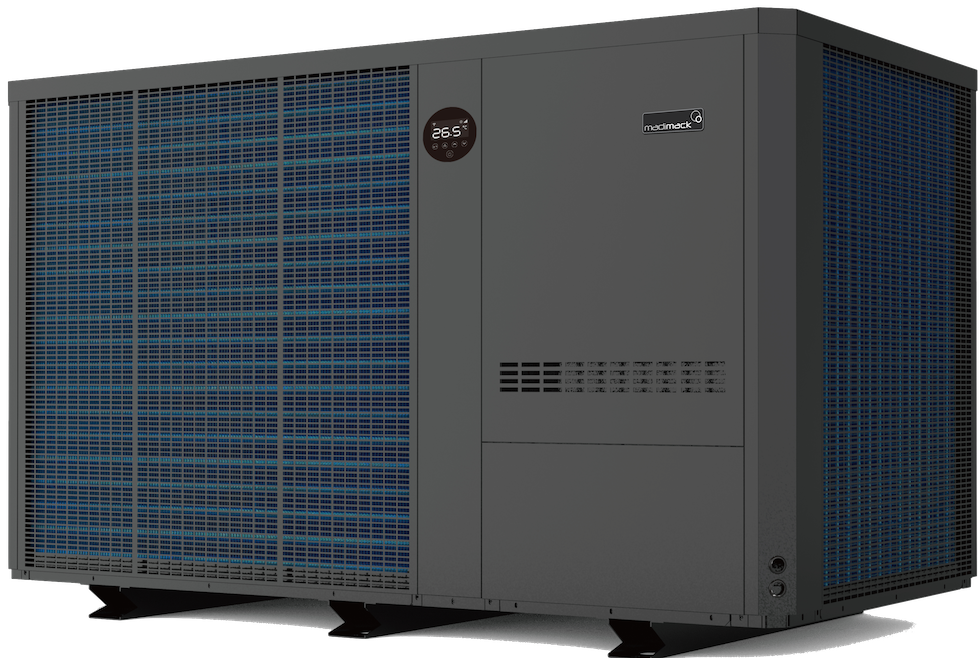
These powerful commercial heaters have the capacity to cope with the demands of any aquatic facility. Built with cutting edge technology and climate adaptive features it also boasts one of the power to size ratio for easier and more discreet installations. The commercial unit is powered with the latest twin rotary inverter technology which has proven to be the optimum choice for on-going energy savings for commercial sized pools.
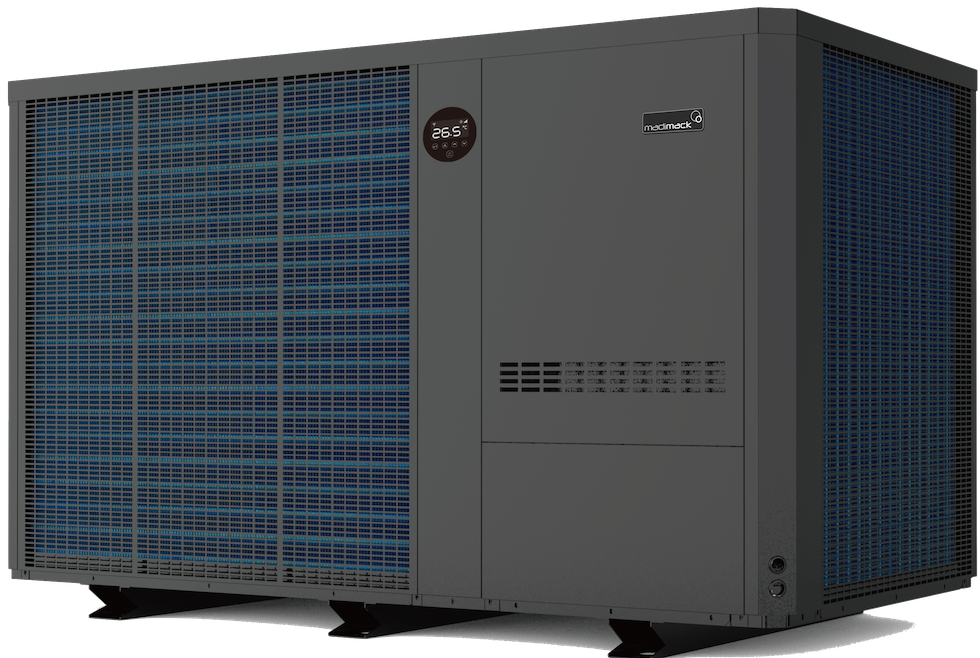
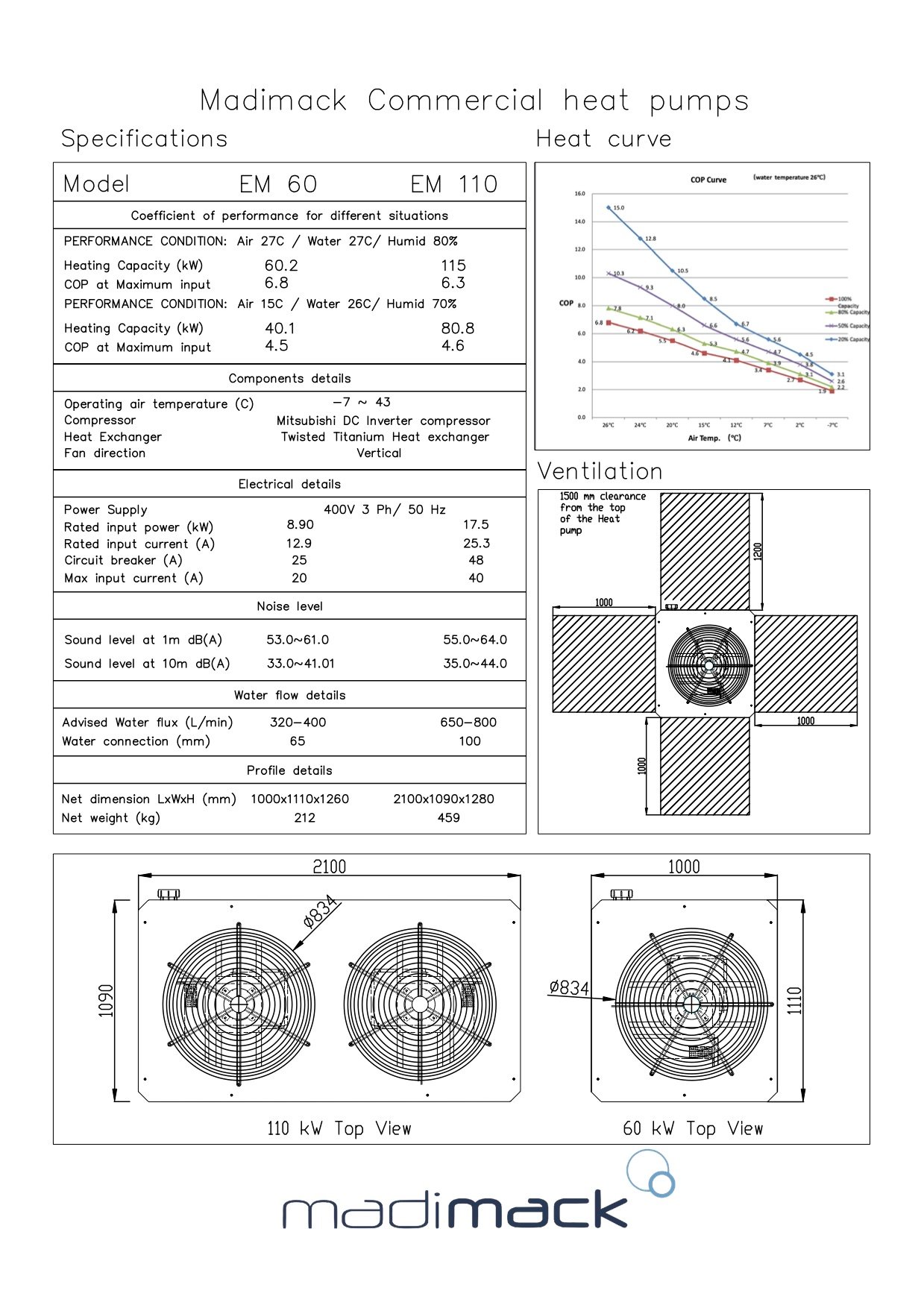
With most commercial pool filtration systems running 24 hours a day this makes the perfect scenarios for an inverter to modulate to its lowest setting over a longer period of time.
The average COP over the year can be up to 40% higher than standard on/off technology.
Meaning ROI is achieved 40% faster
A licensed electrician and plumber is required to install the pool heat pump. We have several mechanical contractors nationally who will be happy to provide a quote. Get in touch with one of our team to find out more
You can request a pool heating evaluation based on your pool volume and location to determine the pool heater you need.
Conditions which affect the heat pump size are; Where is the pool located, how many months of the year do you swim, do you use a cover when it is not in use and the desired temperature.
The heating evaluation will explain all you need to know including approximate running costs.
All units have a different input power, please check the unit Technical Data section or Brochure for the most up to date information on the unit you need,
Our heat pumps have world leading parts and an encased compressor design to reduce noise. With the combination of the back air flow design we have reduced the most amount of noise as possible.
The noise from a heat pump depends on the location it is set and noise reflections. All Madimack heat pumps models are independently tested for sound and performance by TuV Rheinland for peace of mind.
All Db sound levels are in the technical data section
A Heat pump should be positioned as close as possible to the swimming pool filtration system to minimise pressure drop of water flow and heat loss.
A heat pump is designed to be installed outdoors and does not require any covering against the elements. In fact if a Heat Pump which is covered during operation will not perform optimally.
Madimack heat pumps can be positioned above or below the pool water level
As with all swimming pool heating systems you are advised to use a pool cover when the swimming pool is not in use. This will keep evaporation (the greatest heat loss) to a minimum and save water to be refilled in the process.
A pool cover can cut total heat loss by 50% to 75% which is a direct energy saving
As with most heat pumps minimal maintenance is required. The main thing is to ensure the ventilation around the heat pump is not restricted. Check the grills for any leaves or debris which may have been blown in regularly and if in a high salt area a hose down of the external coils may be recommended.
Heat pumps are well known to have an excellent lifecycle compared to other traditional methods of pool heating.
Madimack heat pumps have the highest quality components to ensure that lifecycle is extended as far as possible with a units possible lifecycle up to 20 years

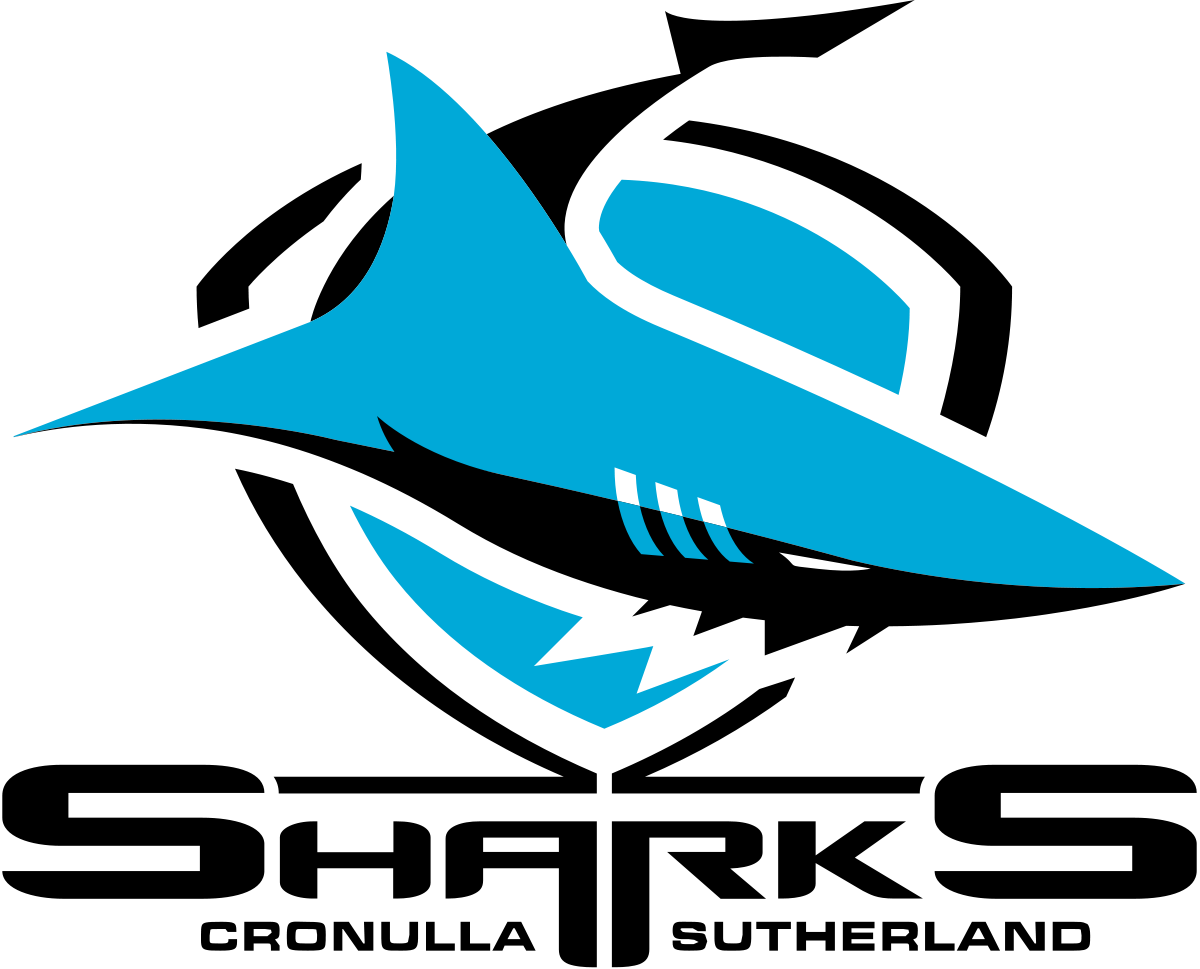

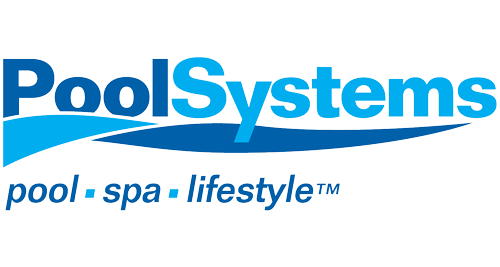

Copyright © , MADIMACK Pty Ltd.